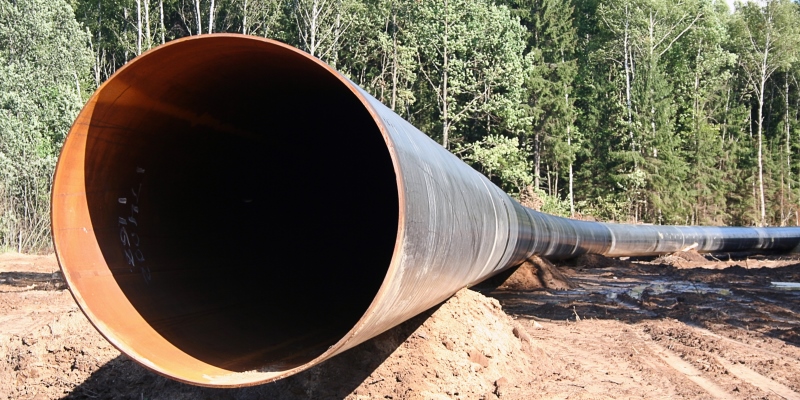Enbridge pipeline approval good news—but Canadian oil remains largely confined to U.S. market

Regulators in Minnesota recently approved Enbridge’s $9 billion “Line 3” replacement pipeline project. This is welcome news as the project will add much-needed export capacity for Canadian oil producers in Alberta who continue to face costly transportation constraints.
Specifically, when it comes on stream in late 2019 or early 2020, the project will add an additional 375,000 barrels per day of export capacity from Canada into the United States. The added capacity will likely increase Canadian oil prices and thereby ease the substantial losses imposed on the energy sector due to the lack of adequate pipeline capacity.
And more capacity is sorely needed. Despite increased oil production, Canada has been unable to build any new major pipelines due to the Trudeau government’s cancellation of the Northern Gateway pipeline, the withdrawal of the Energy East project by Trans Canada due to uneconomic conditions, and excessive delays in the Trans Mountain expansion, Line 3 replacement project and Keystone XL.
Canada’s lack of sufficient pipeline capacity has imposed a number of costly constraints on the energy sector including an overdependence on the U.S. market and increased reliance on more costly modes of energy transportation. These constraints have contributed to depressed prices for Canadian heavy crude (WCS) relative to U.S. crude (WTI) and other international benchmarks. Because of Canada’s lack of pipeline capacity, oil producers have been shipping their crude-by-rail, a higher-cost mode of transportation. Higher crude-by-rail rates mean Canadian oil producers absorb higher transportation costs, leading to lower prices for Canadian crude.
Crucially, depressed prices for Canadian crude have, and continue to, result in lost revenues for Canada’s energy sector, and the economy more broadly. According to a recent study, between 2013 and 2017, insufficient pipeline capacity—and the associated depressed price for Canadian heavy oil—resulted in C$20.7 billion of foregone revenues for the sector. This significant loss equals almost one per cent of Canada’s national GDP.
To make matters worse, Canadian heavy oil producers are estimated to lose another $15.8 billion this year in foregone revenues compared to what other producers of similar products are receiving. That’s roughly another 0.7 per cent of our national economy lost because we can’t deliver our product to international markets and secure better prices. This loss of revenue has far-reaching effects for Canadians. It means less investment and less opportunity, with lower levels of job-creation and ultimately less overall prosperity.
The approval of the Line 3 replacement project is, therefore, a step in the right direction. It will allow Canadian oil producers to increase export capacity to the U.S. and mitigate costly transportation constraints. However, Canadian crude oil producers will still export their products to the United States, which will further exacerbate overdependence on the U.S. market. Currently nearly 99 per cent of Canadian heavy crude is exported to the U.S., meaning the U.S. is essentially Canada’s only export market. Given soaring U.S. oil production in recent years, and competition from American producers, finding new customers for Canadian heavy crude is critical. To do this, Canada clearly needs to build pipelines to tidewater—specifically, the Trans Mountain expansion—to deliver oil to Asian markets.
The Enbridge Line 3 pipeline approval will help relieve the transportation bottlenecks and raise the price of Canadian heavy oil. However, Canada really needs to reduce reliance on the U.S. by accessing new markets, and building the Trans Mountain expansion is key to achieving that goal.
Authors:
Subscribe to the Fraser Institute
Get the latest news from the Fraser Institute on the latest research studies, news and events.


